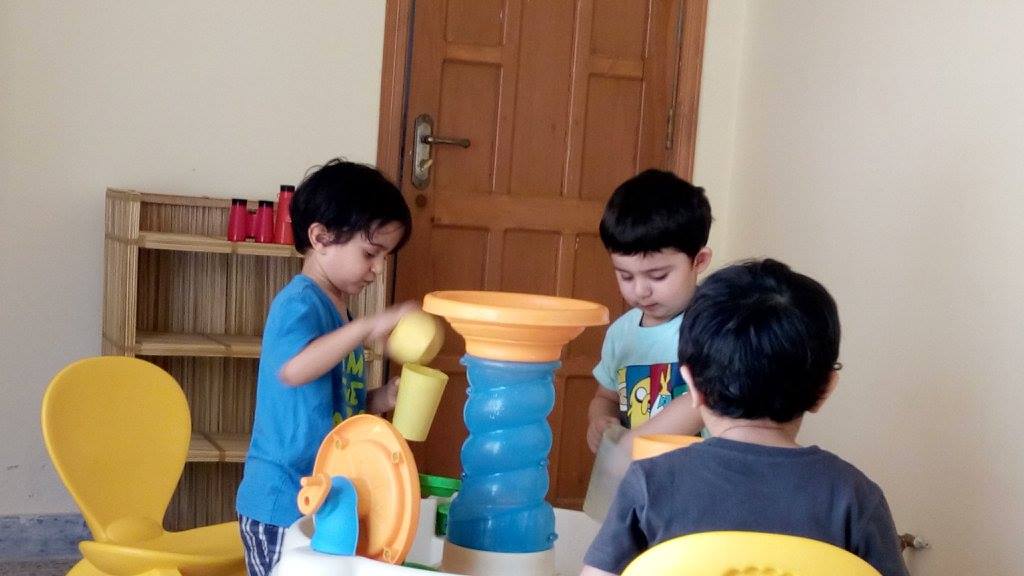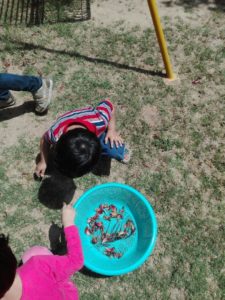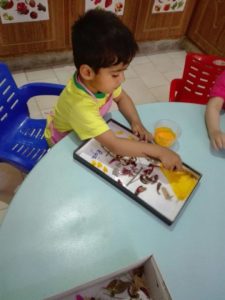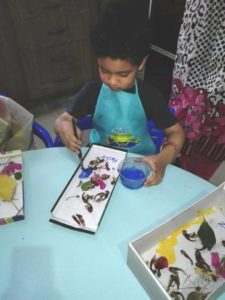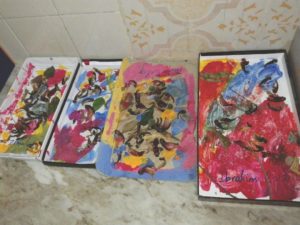[vc_row][vc_column][vc_column_text]Diane Ackerman claims that play is the best way to learn. Dean Shareski writes and talks a lot about the idea of “Joy” in education, and he argues that it is not only a “nice to have”, but a necessity in education. I agree wholeheartedly
[/vc_column_text][/vc_column][/vc_row][vc_row][vc_column][vc_custom_heading text=”Play Promotes Creativity” font_container=”tag:h3|text_align:left”][/vc_column][/vc_row][vc_row][vc_column][vc_column_text]The notion of “play”, which hopefully is synonymous with “joy”, can inspire creativity. At our school children engage in different activities to learn about things. In Autumn we collected leaves and created art from them.
In the book, “The Best Place to Work: The Art and Science of Creating an Extraordinary Workplace“, by Ron Friedman, he discusses that sometimes when we take time to “play”, some of our best ideas can come out of this process:
In many ways, problem solvers are like artists. Taking a few steps back provides painters with a fresh perspective on their subject, lending them a new angle for approaching their work. Problem solving follows a similar recipe, but it’s not always the physical distance that we need as much as the psychological distance—mental space for new insights to bloom. Walking away doesn’t just put our unconscious to work: It helps us see our problem with a new perspective. We become less emotionally attached and free ourselves from the influence of those in our immediate surroundings.
[/vc_column_text][/vc_column][/vc_row][vc_row][vc_column][vc_custom_heading text=”Join the Wisdom Garden Family to learn while playing” link=”url:http%3A%2F%2Fsarahsplaygroup.com%2Fenroll-now%2F||”][/vc_column][/vc_row]

